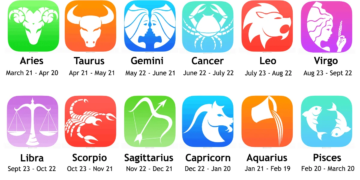By Ghulam Haider
The new two-part BBC documentary series has all but laid the blame for the Gujarat riots – in which around 2,000 people were killed in pogroms against the Muslim community in 2002 – on India’s prime minister, Narendra Modi.
Although most of the documentary is based on archival footage and Narendra Modi’s own public videos, it includes a startling revelation about a secret British probe held into the Gujarat riots.
The first part of the documentary titled “India: The Modi Question” aired on the BBC on January 17, tracks the rise of Modi, his association with Rashtriya Swayamsevak Sangh (RSS) as well as his controversial role as the then chief minister of Gujarat.
https://www.bbc.co.uk/programmes/p0dkb144
It also traces the dubious circumstances and examines the role of Modi in fanning the violence against Muslims in the state, following the murder of around 60 Hindu pilgrims in a train in the town of Godhra, which officials initially blamed on Muslims.
This episode tracks Modi’s first steps into politics including his association with the RSS, his rise through the ranks of the Bharatiya Janata Party (BJP) and his appointment as chief minister of the state of Gujarat where his response to a series of riots in 2002 remains a source of controversy.
The documentary includes an old clip of Modi giving a rare press interview to a British journalist, who later described him as “charismatic, powerful, [and a] quite menacing figure.” In the archival clip, Modi dismisses the questions asked by the journalist regarding the rights of minorities as “false propaganda”.
The documentary reveals a previously unpublished report written by British diplomats whose fact-finding mission to Gujarat following the riot concluded that Modi was “directly responsible” for the “climate of impunity” that enabled the violence that lasted around three days before it subsided.
The report also concluded that there had been “widespread and systematic rape of Muslim women” and that “the aim was to purge Muslims from Hindu areas”.
“The systematic campaign of violence has all the hallmarks of ethnic cleansing,” the report added.
Jack Straw, who was foreign secretary under Labour Prime Minister Tony Blair from 2001 to 2006, talks about the probe and its findings in the film. “I was very worried about it. I was taking a great deal of personal interest, because India is a really important country with whom we have relations. We had to handle it very carefully,” he told the BBC.
He said, “What we did was to establish an inquiry and have a team go to Gujarat and find out for themselves what had happened. And they produced a very thorough report.” He added, “It was very shocking. These were very serious claims that chief minister Modi had played a pretty active part in pulling back the police and in tacitly encouraging the Hindu extremists.
“That was a particularly egregious example of political involvement, really to prevent the police from doing their job, which was to protect both communities, Hindus and Muslims. The options open to us were fairly limited. We were never going to break diplomatic relations with India. But it is obviously a stain on his reputation. There’s no way out of that.”
In the United States, where Modi was banned from travelling to the country for several years on account of his alleged role in the Gujarat riots, and where Indian activists are struggling to raise awareness about growing Hindu supremacy itself, the documentary has been received warmly.
Rasheed Ahmed, executive director of the Indian American Muslim Council (IAMC), told that the film “reinforces what we have been saying for almost two decades that Modi is complicit in the killings of over 2000 Muslims in Gujarat in 2002”.
“In any other functioning democracy, you will find people like Modi who commit crimes against humanity, spending the rest of their lives behind bars, but unfortunately in India, he was crowned with the top echelon of power,” Rasheed said.
The second and final episode of the documentary airs on 24 January.
BBC rejects accusations of bias
The BBC has rejected Indian government’s accusations of bias and called their production “rigorously researched”, offering “a wide range of voices, witnesses and experts were approached, and we have featured a range of opinions, including responses from people in the BJP”.
Rasheed, from the IAMC, said it was unsurprising that Modi’s PR machine was out in full force to deny and distract from his role in the pogroms.
“They will do everything in their power to suppress its screening. But this important piece of journalism has already brought Modi again under the international community’s scanner for his role in 2002 and renewed calls to prosecute him,” Rasheed added.
Likewise, Raju Rajagopal, co-founder of Hindus for Human Rights (HfHR), told that he was grateful to the BBC for bringing the story to the world’s attention.
“As someone who travelled in Gujarat extensively after the 2002 pogroms, and spoke to victims, journalists, NGOs, and politicians, Modi’s culpability in the aftermath of the Godhra train burning has been too obvious to me.”
“Modi’s actions and rhetoric after the 2002 pogroms, and more importantly, his lack of action and studied silence about right-wing violence, were clear evidence of his abdication of his sworn duties as the CEO of a state to protect the rights of everyone in his state,” Rajgopal said.
Since Narendra Modi took over in 2014, activists and observers say that Indian Muslims are being pushed further to the margins, with calls for their elimination becoming increasingly mainstream.
In 2019, several months after Modi became prime minister for a second time, the Indian government passed the Citizenship Amendment Act (CAA), which excludes Muslim immigrants and refugees living in India from obtaining citizenship.
In its World Report 2023, published earlier in January, Human Rights Watch described the BJP government as using “abusive and discriminatory policies to repress Muslims and other minorities”.
“The authorities in several BJP-ruled states demolished Muslim homes and properties without legal authorization or due process as summary punishment for protests or alleged crimes.”
Narendra Modi is the leader of the world’s largest democracy, and has been courted as a key ally by both the US and the UK because of an important bulwark against Chinese domination of Asia.
His premiership has been dogged by persistent allegations about the attitude of his government towards India’s Muslim population.
This series investigates the truth behind these allegations and examines Modi’s backstory to explore other questions about his politics when it comes to India’s largest religious minority.
India blocks BBC documentary
India has blocked the airing of a BBC documentary saying that even sharing of any clips via social media is barred.
Directions to block the clips from being shared have been issued using emergency powers available to the government under the country’s information technology rules, said Kanchan Gupta, an adviser to the government, on his Twitter handle.
While the BBC has not aired the documentary in India, the video was uploaded on some YouTube channels, Gupta said.

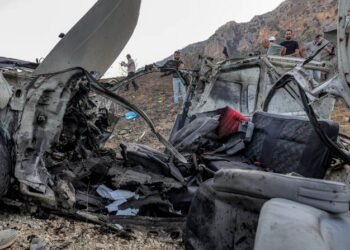
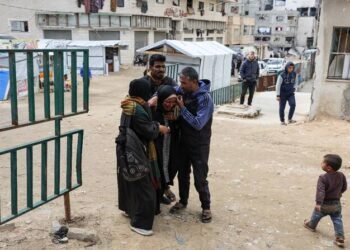

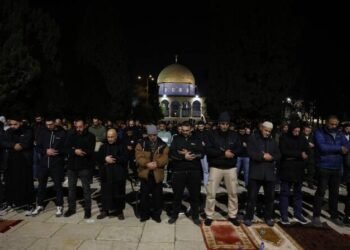
 United Arab Emirates Dirham Exchange Rate
United Arab Emirates Dirham Exchange Rate